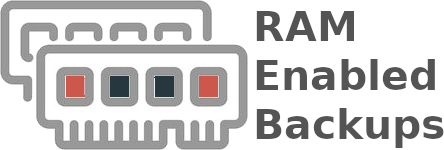XCP-ng 8.1 is available
To get more information about this release, you can check our detailed release notes here and known issues here. XCP-ng 8.1 is based on the latest Citrix Hypervisor release.

Major highlights
RAM enabled backup support

XCP-ng 8.1 embeds the XAPI (XenServer/XCP-ng API) modification required to support VM backups with its RAM. This new feature is available directly in Xen Orchestra for you to try.
In short, you are now able to backup and restore a VM, with its context, the whole RAM. It's like an hibernation: during the backup, VM is paused to save its RAM to a special disk (larger the RAM, longer the pause). Then, the content is sent to the backup repository.
You can restore it anytime later on another host, and resume it as if nothing happened. From the VM perspective, its uptime will be kept. Combined with Xen Orchestra Continuous Replication, you can also send your VM data and memory every XX hours to another XCP-ng host or pool, and resume it as soon you need it.
For more information and use cases, you can check this Devblog written by our developer Benjamin.
Note: this will work only with XCP-ng 8.1, but it will be backported to 8.0 later.
Upstream first!
This feature is not available on Citrix Hypervisor for now. However, we are doing all our changes upstream, so maybe in the future Citrix will consider this and bundle it too. You can track our merge progress in this public merge request on XAPI GitHub: https://github.com/xapi-project/xen-api/pull/4057
Xen version updated

The Xen version used in XCP-ng 8.1 has been updated for a more recent one: Xen 4.13.
This version of Xen embeds some security updates and support for more recent hardware among other things. You can take a look on Xen's release notes for more information about this version.
New hardware support
Support for AMD EPYC 7xx2(P) has been added

Ext4 is now the default for local SR
For all new local storage using the EXT filesystem, it now defaults to ext4. It's faster to format on very large disks or partitions.

XCP-ng exclusive packages
Alternate Kernel
You can now use an Alternate Kernel in XCP-ng (version 4.19.108).
The main use for the Alternate Kernel is debugging and troubleshooting.
Alternate kernel in the installer:
- if the installer can't boot on your hardware, try the alternate kernel, it might work with it.
- Then report to us so that we can try to fix the main kernel.
- Same if you have driver issues with the main kernel in the installer
Alternate kernel on the installed host:
- may fix boot or driver issues for some people and allow them to use XCP-ng until we can fix the main kernel. Of course, we can only fix the main kernel if the users tells us about the issues and allow us to debug.
XFS
Experimental support for XFS in local storage repository still available through the sm-additional-drivers package.
ZFS
ZFS still available as an additional package and updated to 0.8.3.

Installer Improvements in XCP-ng 8.1
Our installer now offers two new installation options. In BIOS mode, access them with F2 when offered the choice. In UEFI mode, see the added boot menu entries.
- First new option: boot the installer with a 2G RAM limit instead of the 8G default. This is a workaround for installation issues on hardware with Ryzen CPUs. Though those are Desktop-class CPUs and not supported officially in the HCL, we tried to make it easier to workaround the infamous "installer crashes on Ryzen" issue.
- Second new option: boot the installer with our alternate kernel (kernel-alt). That kernel, built and maintained by @r1 for the team, is based on the main kernel, with all upstream kernel.org patches from the LTS 4.19 branch applied. It should be very stable by construction but it receives less testing. That option is there for cases when the main kernel and drivers have issues, so that you can quickly test if kernel.org patches have fixed it already. It will also install the alternate kernel in addition to the main kernel as a convenience. If kernel-alt fixes issues for you, the most important thing to do is to tell us so that we may fix the main kernel!
How to upgrade
XCP-ng 8.1 is a minor upgrade from 8.0, which means you can use the yum upgrade method (from 8.0 only!), OR download the ISO file which works for upgrading any previous release.
Download files are available here:
- Standard ISO: http://mirrors.xcp-ng.org/isos/8.1/xcp-ng-8.1.0-2.iso
- Net-install ISO: http://mirrors.xcp-ng.org/isos/8.1/xcp-ng-8.1.0-2-netinstall.iso
- SHA256SUMS: https://updates.xcp-ng.org/isos/8.1/SHA256SUMS
- Signatures of the sums: https://updates.xcp-ng.org/isos/8.1/SHA256SUMS.asc
Refer to the official instructions for upgrading.
Documentation
Our main documentation is in our wiki and is open to contributions from any github user.




